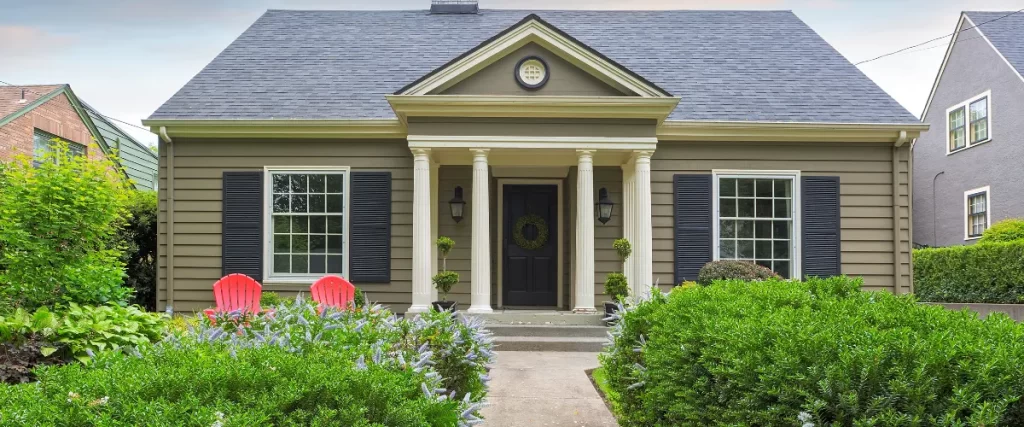If you’re planning to build a custom home in Middlesex County, you’re probably thinking about layout, design features, and square footage—but have you thought about what’s beneath your future home? It may not be glamorous, but understanding soil and foundation issues is one of the most important steps in protecting your investment.
Here in Central New Jersey, and especially in Middlesex County, soil conditions vary dramatically from one neighborhood to the next. And if you overlook those differences, your dream home could suffer from costly structural problems down the line.
Don’t worry—we’re going to break it all down so you know exactly what to watch for, what to ask, and how to build a strong foundation (literally and figuratively) for your new home.

Why Soil and Foundation Matter So Much in Middlesex County
We’ve got a little bit of everything here—clay-rich soils, sandy patches, and low-lying flood-prone areas. Depending on where you’re building—Old Bridge, East Brunswick, Edison, or anywhere in between—your soil type can determine:
- The kind of foundation you need
- The drainage solutions required
- The risk of settling, cracking, or water intrusion
- The long-term durability of your structure
Soil isn’t just dirt. It’s the entire base your house will sit on for decades to come. Getting this right at the beginning can save you thousands of dollars and years of headaches.
The Soil Landscape of Middlesex County, NJ
Middlesex County’s geology is a blend of glacial deposits, loamy soils, and river valleys. This variation presents both opportunities and challenges when it comes to construction.
Common Soil Types in the Region:
- Clay-Rich Soils (East Brunswick, South River): Clay expands when wet and shrinks when dry, which can cause serious foundation shifts.
- Loam and Sandy Loam (North Brunswick, Spotswood): Drains better than clay but can lack stability under heavy structures without proper compaction.
- Silt and Floodplain Soils (Near Raritan River, Sayreville): These can be problematic due to poor drainage and susceptibility to flooding.
To build safely and efficiently, you need to know what type of soil you’re working with—and what that means for your foundation.
Step One: Soil Testing (Geotechnical Investigations)
Before any design begins, you’ll want to order a geotechnical soil investigation. This is a detailed report from a soil engineer that tells you:
- What type of soil is on your property
- How deep the good load-bearing layers are
- How much moisture the soil retains
- Whether the ground is prone to shifting, settling, or flooding
This report is your roadmap. It will directly inform what kind of foundation is most appropriate for your custom home.

Foundation Types That Work Well in Middlesex County
Once you understand your soil profile, you can match it with the right foundation type. Here’s a breakdown of the most commonly used foundations in Central NJ and when they make sense.
1. Basement Foundations
Basements are popular in this part of New Jersey for added living space and storm protection. But they only work well in areas with:
- Well-drained soils
- High enough elevation to avoid the water table
- A strong waterproofing system
Poor drainage or high clay content can cause cracking or flooding unless properly mitigated.
2. Crawlspaces
Great for clay-heavy or flood-prone zones. They keep the structure above ground moisture and allow for easy access to plumbing and HVAC systems. Just make sure crawlspaces are:
- Properly ventilated
- Sealed from groundwater
- Equipped with vapor barriers
3. Slab-on-Grade
Often used in areas with high water tables or sandy soils. This type keeps the home low to the ground and is less expensive to install. It’s crucial that:
- The soil is compacted correctly
- A moisture barrier is installed beneath the slab
- Perimeter drainage is included
4. Pier and Beam Foundations
Best for problematic soils that shift or retain water. This elevated style keeps your home safe from moisture and allows the structure to “float” above unstable ground.
Common Foundation Issues in Middlesex County
Let’s be honest—foundation problems are expensive and stressful. That’s why it’s so important to plan ahead. Here are a few common issues we see in this area:
- Settling and cracking due to shrinking clay or un-compacted soils
- Basement water intrusion after heavy rains (especially near the Raritan and Millstone Rivers)
- Efflorescence (white mineral deposits) due to poor moisture barriers
- Mold and mildew in crawlspaces from high humidity and inadequate ventilation
- Frost heave in shallow footings from freeze-thaw cycles
The good news? With the right foundation system and drainage design, all of these are avoidable.
Smart Drainage & Site Prep: Your Secret Weapon
One of the most overlooked aspects of building is site grading and drainage. Even the best foundation can fail if water is allowed to pool around your home. Here’s how to get it right:
- Grade the lot to slope water away from the foundation
- Install French drains or curtain drains where necessary
- Use gutter extensions and downspouts to carry water at least 6 feet from the house
- Consider a sump pump with battery backup for basements
- Add a vapor barrier under slabs and crawlspaces
These simple steps can prevent massive issues years down the road.
Local Regulations and Permits
Middlesex County has strict building codes, especially when it comes to stormwater and soil disruption. Before construction, you’ll need to work with:
- Middlesex County Planning Board: https://www.middlesexcountynj.gov
- Local municipal construction offices in towns like Edison, Woodbridge, or South Brunswick
- New Jersey Department of Environmental Protection (NJDEP) if you’re near a wetland, stream, or flood zone
Make sure your engineer and builder are familiar with local rules. One missed permit can delay your entire project.
Top Foundation System Manufacturers for New Jersey Builders
Choosing a strong, weather-resilient foundation system starts with quality products. These manufacturers are trusted across NJ for durable, code-compliant solutions.
Trusted Brands for Soil-Appropriate Foundation Systems
Superior Walls – Precast insulated foundation walls, perfect for below-grade basements with superior moisture control.
Perma-Column – Hybrid concrete-steel piers designed to resist soil movement and moisture—great for crawlspaces and piers.
Helical Piers by Chance – Deep foundation solutions ideal for clay-rich or flood-prone sites with a history of shifting or settling.
Redi-Rock – Modular concrete blocks used for foundation reinforcement and retaining walls in uneven or unstable soils.
Atlas Piers of New Jersey – Reliable pier and beam solutions tailored to New Jersey’s soil conditions and coastal climate.
FAQ: Soil & Foundation Issues in Middlesex County
Can I build a basement if my soil has a high water table?
Yes, but you’ll need professional waterproofing and likely a sump pump system. It’s doable with the right prep.
How long does a soil test take?
Usually 1–2 weeks from scheduling to receiving the final report. Always do this before designing your foundation.
Are foundation problems common in Middlesex County?
They can be, especially in older homes or areas with clay-rich soils. Proper planning helps you avoid issues from day one.
Do I need a permit to install drainage systems?
Yes, in many cases—especially if it affects stormwater runoff or involves grading near wetlands.
What foundation type is best for clay-heavy soil?
Pier and beam or crawlspaces tend to perform better than basements in clay zones.

Build on Solid Ground – Literally
Building a custom home in Middlesex County is exciting—but don’t let soil and foundation issues catch you off guard. The ground beneath your home is just as important as the walls above it. With smart planning, proper testing, and the right foundation design, you can build a home that lasts a lifetime.
If you’re planning a custom home and want expert insight into your lot’s soil and foundation potential, contact us at (732) 913-0742 to kickstart your custom home project. We’ll help you build smart from the ground up—starting with the earth itself.
